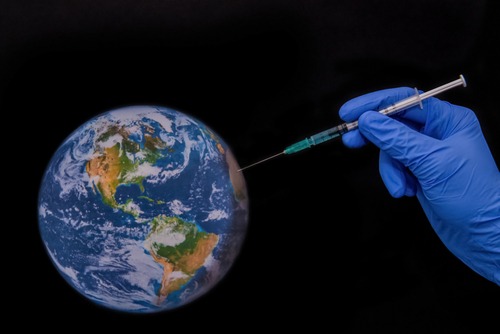
Vaccine equity is in need of a boost globally, and in Africa in particular, and unless that changes, World Health Organization (WHO) Director-General Dr. Tedros Adhanom Ghebreyesus and other health leaders said this week the COVID-19 pandemic may never end.
Cooperation is the key to ending the pandemic, these experts stressed in a press conference, which followed two days of meetings. Highlighting the divide that remains, Tedros pointed to the fact that while more than 5.7 billion doses of COVID-19 vaccines have been administered worldwide, only 2 percent of those have reached Africa. That could have wider reaching consequences.
“This doesn’t only hurt the people of Africa, it hurts all of us,” Tedros said. “The longer vaccine inequity persists, the more the virus will keep circulating and changing, the longer the social and economic disruption will continue, and the higher the chances that more variants will emerge that render vaccines less effective.”
Currently, WHO’s global vaccination target is set at 70 percent among the population of all countries by mid-2022. More specifically, it seeks to vaccinate at least 10 percent of the population of every country by September 2021, at least 40 percent by the end of the year, as a path to the 70 percent overall ambition.
Among those who joined Tedros in restating these goal were Dr. Seth Berkley, CEO of Gavi; Strive Masiyima, AU Special Envoy for COVID-19; Dr. John Nkengasong, Africa CDC Director; professor Benedict Oramah, president and chairman of the Board of Directors at Afreximbank; Dr. Vera Songwe, UN Under-Secretary-General and Executive Secretary of the Economic Commission For Africa; and Dr. Matshidiso Moeti, WHO Regional Director for Africa.
“We will not be able to achieve 60 percent of our population fully immunized if we do not fully explore and deploy the power of partnership, the power of cooperation, and the power of solidarity,” Nkengasong said. ”We all have acknowledged now that vaccines are the only solution for us to get out of this pandemic collectively. That has to be done quickly.”
To date, Songwe elaborated, every single month of lockdowns in Africa cost the continent $29 billion of production. This has left economies struggling and in desperate need of financing to be able to properly respond to the crisis. Building on this, Oramah added that Africa did not seek to be at the bottom of a vaccine queue — it’s simply how things shook out, and it wants to achieve economic recovery and a controlled viral situation alike.
“We know that scarcity means increased cost, and we cannot afford today as a continent that kind of scarcity,” Songwe said.




